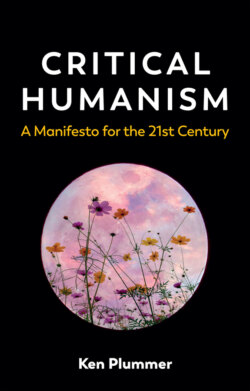Читать книгу Critical Humanism - Ken Plummer - Страница 21
Humanism as Western Enlightenment
ОглавлениеI start straightforwardly: with the widely accepted claim that humanism is a Western phenomenon and derives from the Enlightenment. This view has been promoted over the last 250 years; it is pervasive in the academy and the West, and its most prominent, popular proponent these days is the cognitive psychologist Steven Pinker.12 For Pinker, humanism begins with the ancient Greeks, is rediscovered in Renaissance Florence, and accelerates with the science and rationality of the Enlightenment. It claims to be the harbinger of unmistakeable essential human progress. And such ideas have been widely influential. But they flag just one form of humanism bound up with one narrow ‘Western’ context. It is better to call it just that: ‘Western Enlightenment Humanism’. It should not be allowed to completely overwrite the rich diversity of earlier and wider claims for thought about humanity across world history. If followed, it can indeed become part of the much wider dominance and hegemony that male Western thinking has been busy claiming for itself over the past 500 years or so (a view recently claimed as narcissistic in the extreme13). It seems, rather perilously, to have claimed to be the only serious thought in the world! Creating a monologic world, it has denied the rich reality of a ‘world of many worlds’, a ‘plural world’.
For some time, a number of major intellectual and political movements have been trying to bring this ‘rest of the world’ back into our thinking. We need a world humanism, not a Western humanism. As ideas of globalization have accelerated, we have been made to think about the processes and interconnectedness of the world’s nations. More strongly, key ideas around colonization and postcolonization have brought us to see the divide between the global North and the global South, the East and the West, the poor and the rich. Starting perhaps with Gandhi and Franz Fanon, these ideas developed especially in the works of Edward Said. They are now advanced in the writings of Gurminder K. Bhambra, Raewyn Connell, Arturo Escobar, Marisol de la Cadena, Boaventura de Sousa Santos, Bernd Reiter and many others, in a major critique of colonized, metropolitan, Western-centric thought.14 These works suggest there exists a vitality of intellectual and creative humanity across history and cultures that has been ignored or stunted. Providing a much greater awareness of a diverse human world and its ‘ecologies of knowledge’, they raise the ways different ideas are bound up with diverse local cultures and social conditions. Where, for example, do Africa, Asia and Latin America fit into this Enlightenment account? Where are China, Russia and India in this story?
From this, we start to see the role of power, ideology and hegemony in understandings of the Enlightenment. ‘Knowledges’ of many of the world’s countries – like the countries themselves – have been colonized. Spanish sociologist Boaventura de Sousa Santos notably talks about the ‘waste of experience’ and a world knowledge (epistemology) where so much has been excluded through ‘blindness’ and ‘absences’.15 A wide rich mosaic of diverse cultures all over the world, a pluriverse, gets excluded by Western thought. The lush richness of world humankind gets denied, lost or betrayed.
